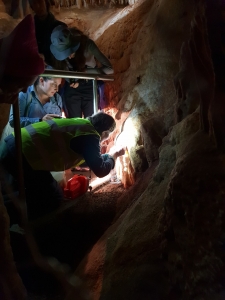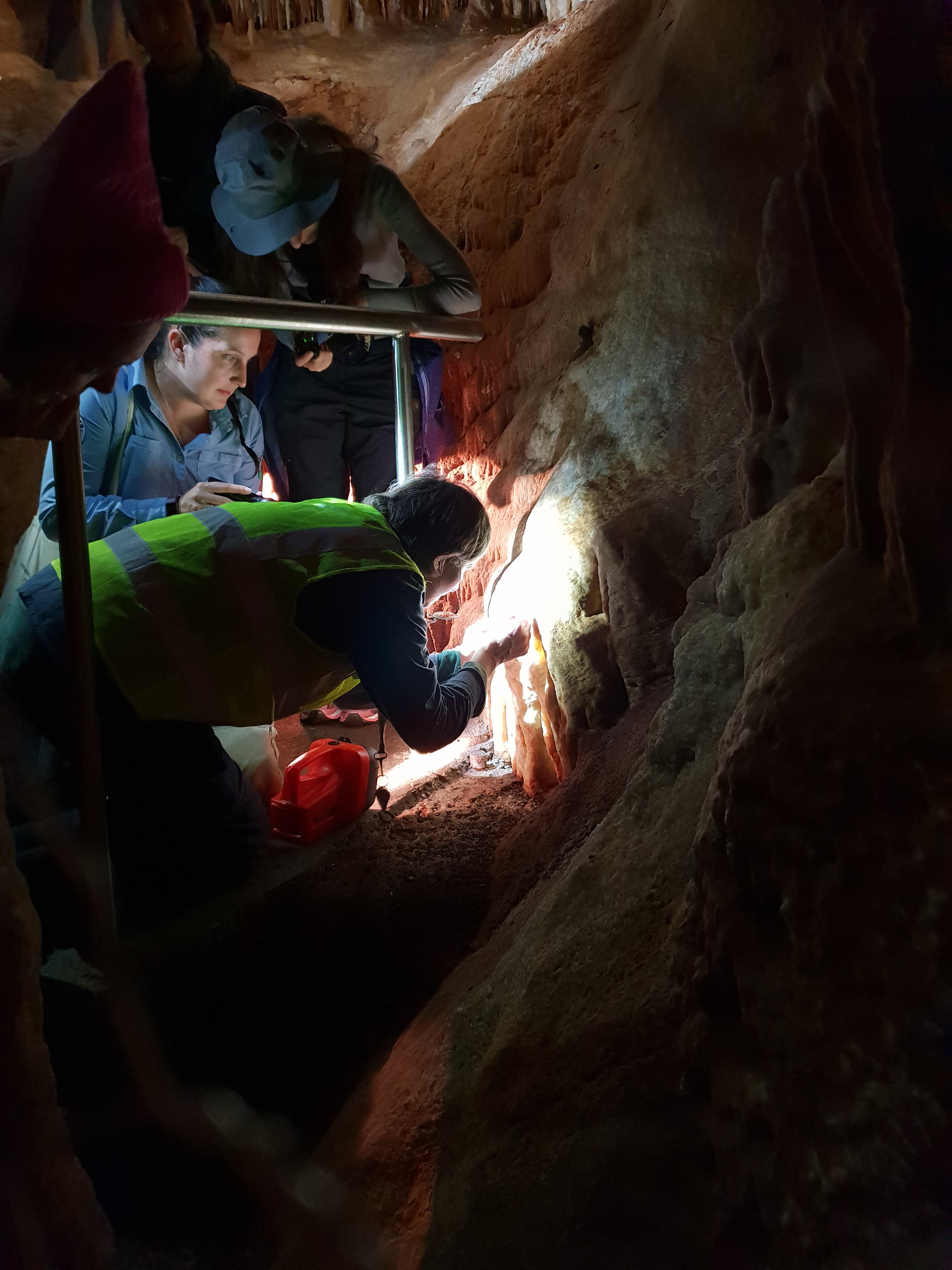One could be forgiven for thinking that chasing spiders is not a very popular option when it comes to choice of weekend activities. However, for an enthusiastic group of adventurers, 48 hours spent combing the surrounds of Jenolan Caves resulted in 45 new species of cave-dwelling spider added to the Australian Museum record.
The survey for troglobites was just one of a number of activities conducted as part of the Jenolan Caves Bioblitz, an intensive biological study over a short period of time to record as many species as possible within a limited area. The records are added to public repositories such as the museum inventory and the Atlas of Living Australia.
According to Mary Bonet, Kanangra to Wyangala Link Coordinator, the Bioblitz featured dawn and dusk bird surveys, platypus watches, reptile, vegetation, terrestrial invertebrate and water bug surveys. In total, 100 nature enthusiasts recorded 200 plant and animal species during the event.
“That’s the joy of running a Bioblitz,” said Mary. “It gives people a rare opportunity to exercise their inner scientist and time to explore nature under the guidance of an expert ecologist.
“Of the animals we recorded, the Agile Antechinus was the highlight. There is only one other record of this small marsupial in the area which was collected nine years ago,” she said.
“Seven threatened fauna were recorded including Koala, Spotted-tailed Quoll, Gang-gang Cockatoo, Sooty Owl, Flame Robin, Greater Glider and Brush-tailed Rock-wallaby. We also observed a single Shining Bronze-Cuckoo, a species which hasn’t been recorded at Jenolan since 1986.
“The Leaf Green River Tree Frog was another a new record for the area. It’s been previously recorded in Kanangra-Boyd and Blue Mountains national parks, but as far as we know not from Jenolan until now,” said Mary.
“We also found 19 plants that were not previously recorded in the karst reserve. One species, Small-flowered Wallaby Grass, is a new record for the region,” she said.
Protected since 1866, the forests and caves of the karst reserve provide a refuge for both plants and animals, with many species occurring despite having disappeared from large areas of their former range.
“The 2018 Jenolan Caves Bioblitz allowed for rapid assessment of what’s there, a bit like a biodiversity health check,” Mary said.
David King, a Gundungurra man from the Blue Mountains, opened the event with a Welcome to Country and smoking ceremony. Taronga Zoo brought its ever-popular Zoomobile. Booths displayed information from the Office of Environment and Heritage ‘Save Our Species’ (SoS) Program, the Foundation for National Parks and Wildlife and the National Parks Association. Volunteers from University of Sydney and International Volunteers for Peace provided support.
The 2018 Jenolan BioBlitz was supported by the NSW Government’s Environmental Trust through the K2W partnership and Foundation for National Parks and Wildlife. To see this and other Bioblitz projects go to biocollect.ala.org.au/bioblitz

